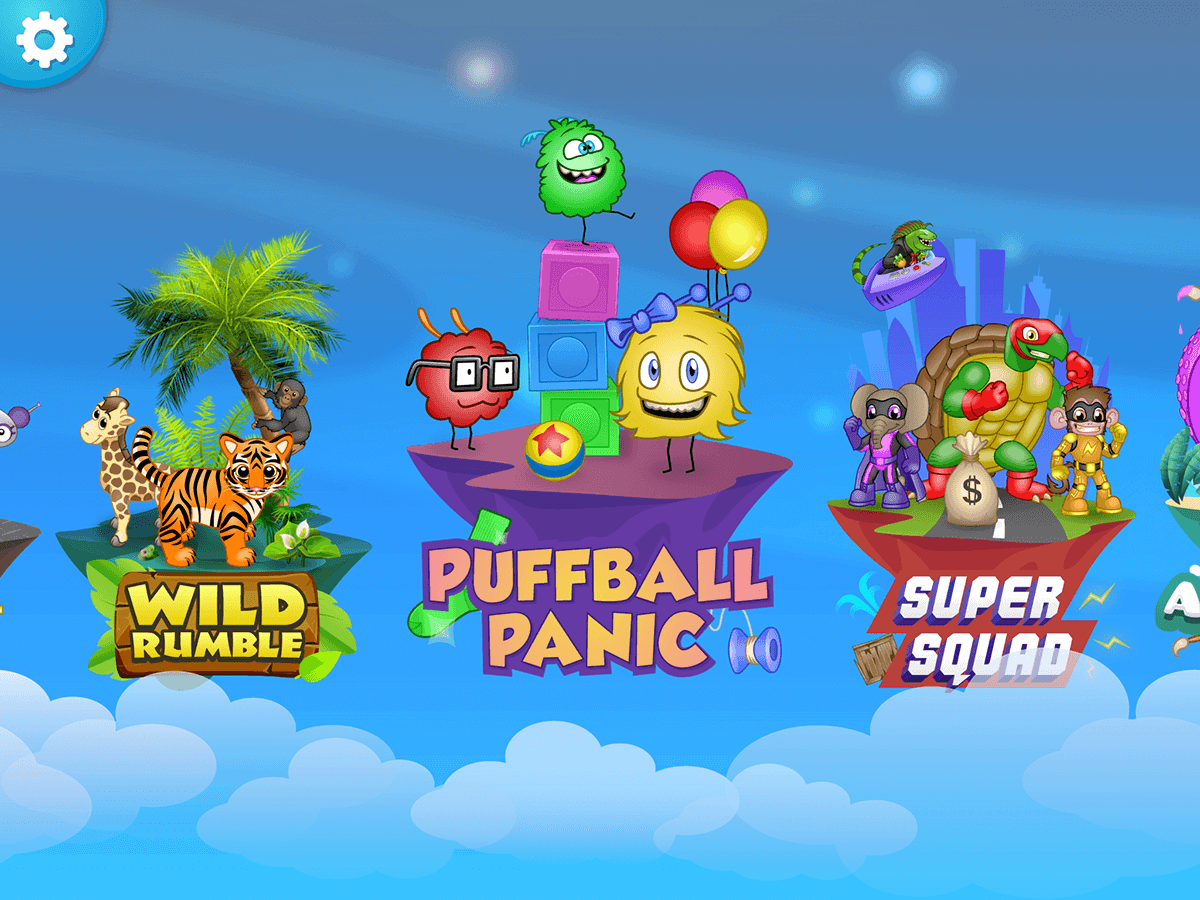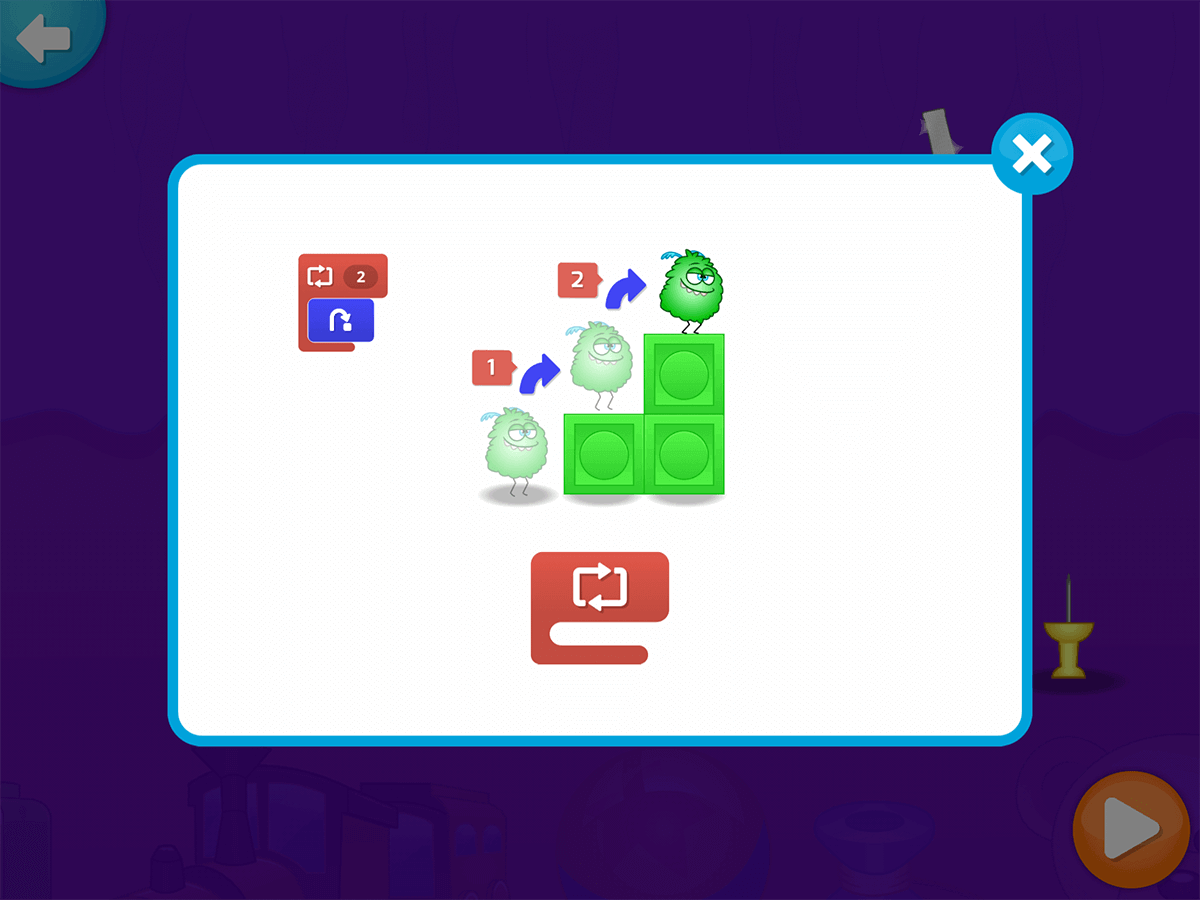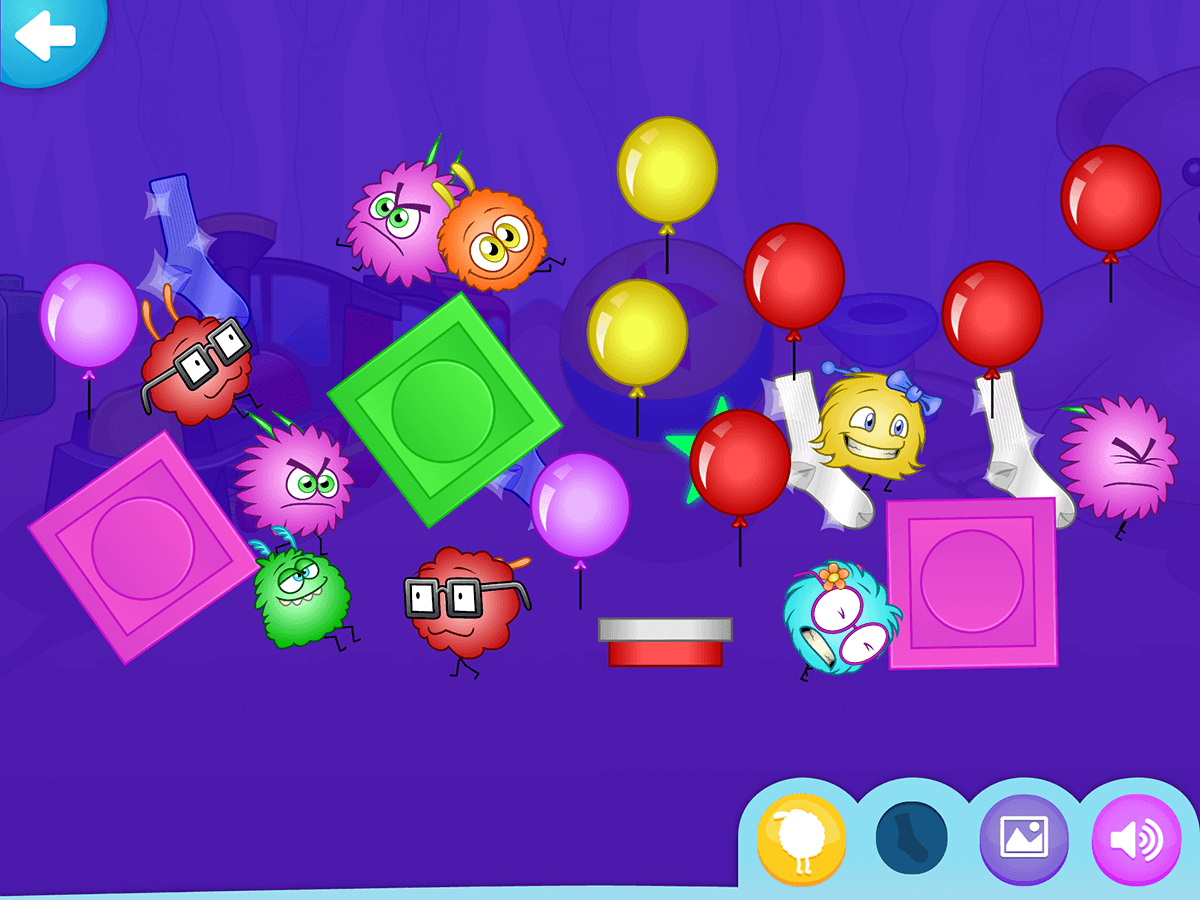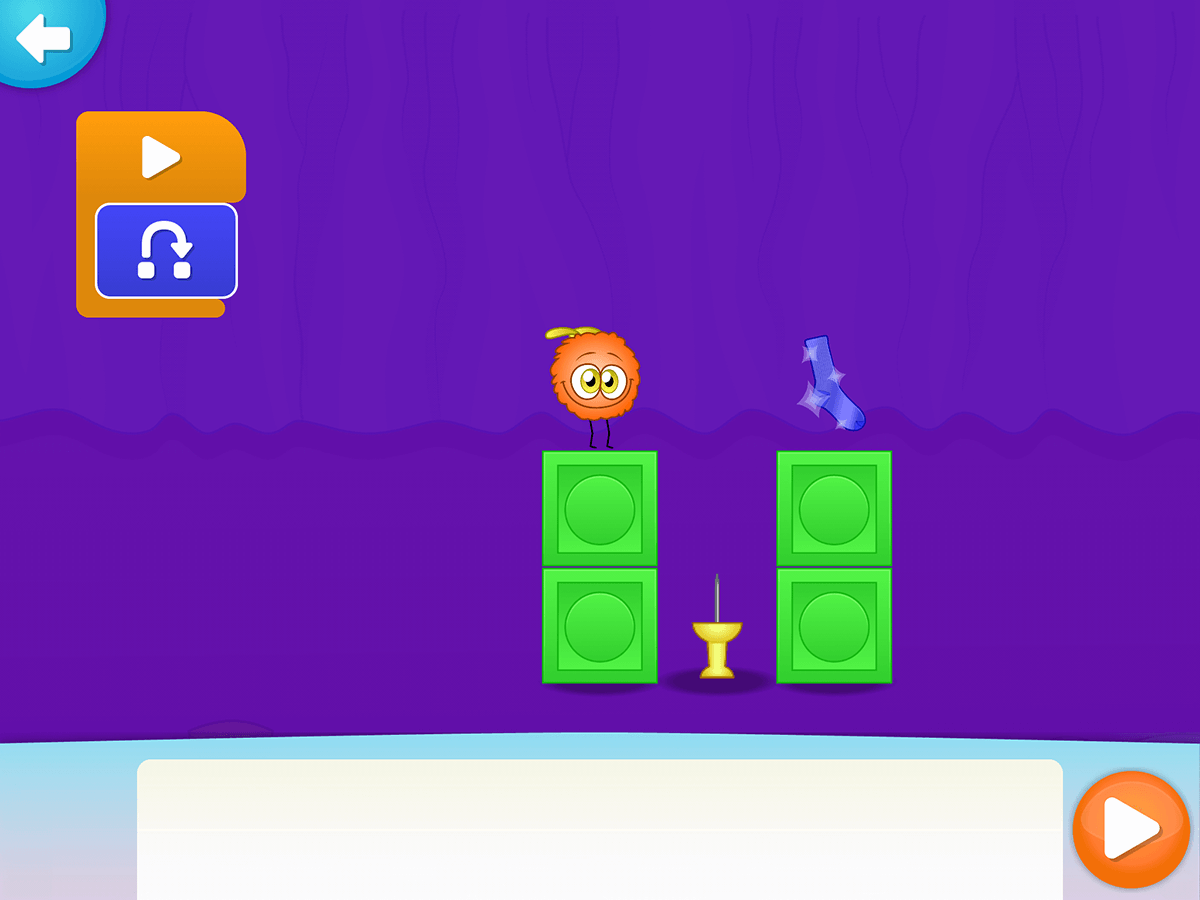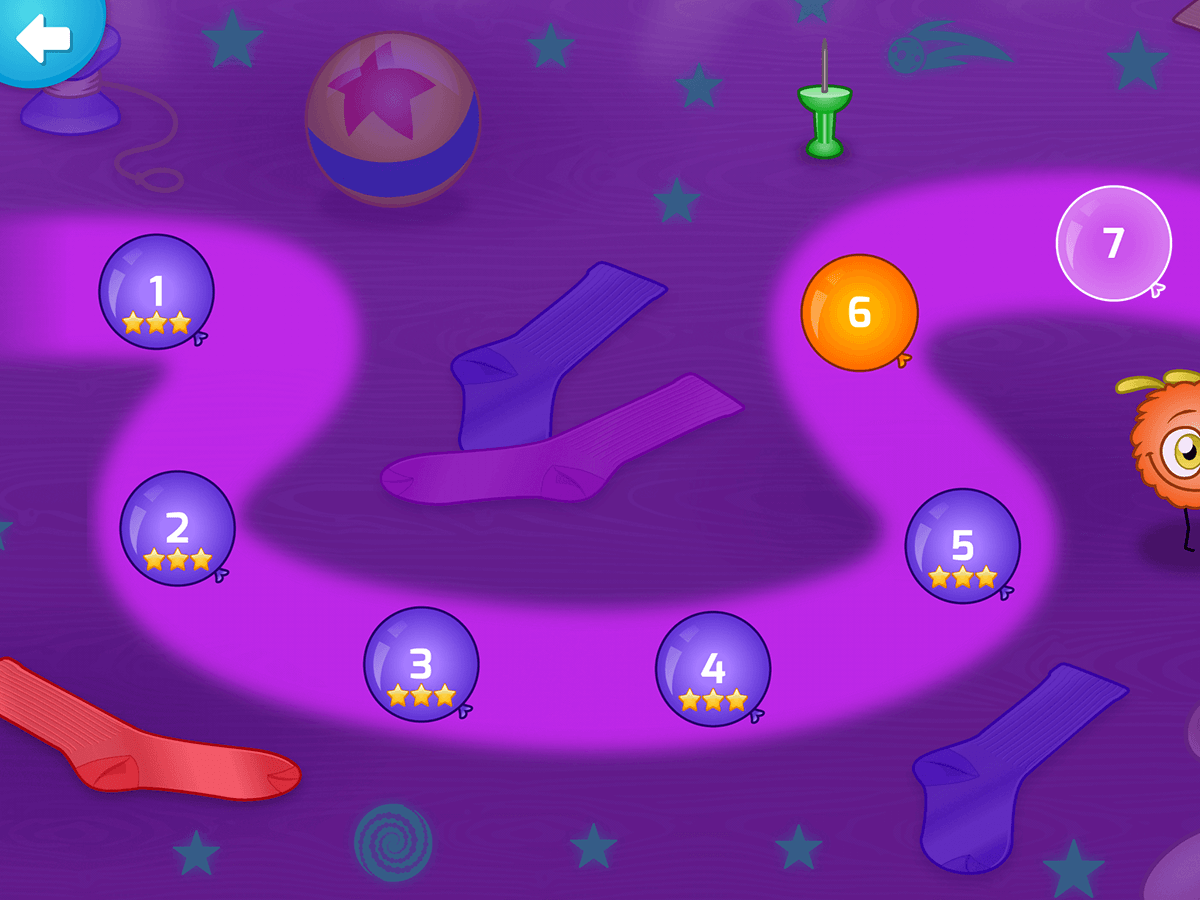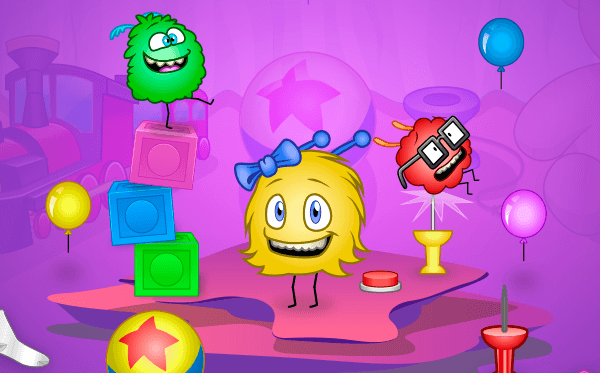
Puffball Panic
- PRE-K TO GRADE 2
- BEGINNER
- IPAD
- 4 LESSONS
-
 Voiceovers
Voiceovers
Answer Key
Module 2: Balloon Bonanza - Puzzle 1

Module 3: Balloon Bonanza - Puzzle 2

Module 4: Balloon Bonanza - Puzzle 3

Module 5: Balloon Bonanza - Puzzle 4

Module 6: Balloon Bonanza - Puzzle 5

Module 7: Balloon Bonanza - Puzzle 6

Module 8: Balloon Bonanza - Puzzle 7

Module 9: Balloon Bonanza - Puzzle 8

Module 10: Balloon Bonanza - Puzzle 9

Module 11: Balloon Bonanza - Puzzle 10

Module 12: Balloon Bonanza - Puzzle 11

Module 13: Balloon Bonanza - Puzzle 12

U.S. Standards
- CCSS.Math: K.CC.B.4, MP.1
- CSTA: 1A-AP-08, 1A-AP-09, 1A-AP-10, 1A-AP-11, 1A-AP-14
- CS CA: K-2.AP.12, K-2.AP.13, K-2.AP.16, K-2.AP.17
- ISTE: 1c, 5c
U.K. Standards
Key stage 1
Pupils should be taught to:- understand what algorithms are, how they are implemented as programs on digital devices, and that programs execute by following precise and unambiguous instructions
- create and debug simple programs
- use logical reasoning to predict the behaviour of simple programs
- use technology safely and respectfully, keeping personal information private; identify where to go for help and support when they have concerns about content or contact on the internet or other online technologies
Lesson 3: Balloon Bonanza
Course: | iPad
Description
Fourth in the series of pre-reader courses, Puffball Panic introduces pre-readers to conditional loops and nested loops, while reinforcing pattern recognition and sequencing. To use Puffball Panic in your classroom, you must download the Tynker Junior app from the App Store. The Tynker Junior app offers a collection of courses specifically designed for young children (ages 4-7) who are still learning how to read.
In Puffball Panic, students help the friendly dust bunnies add to their sock collection while avoiding obstacles. They are introduced to conditional loops that they use to repeat tasks until a condition is satisfied. They detect patterns and apply nested loops to reach a goal. They play in a physics-enabled sandbox where wacky interactions ensue!
Tynker Junior uses word-free picture-based block programming with fun characters to help kids develop animations, pursue adventures and solve puzzles and challenges. This enables young children—who have limited motor skills and are still developing hand-eye coordination—to learn to code using big blocks, pictures, voiceovers and tap-tap-tap interactions, without words or drag-and-drop or any other actions they may find too tedious or overwhelming. Tynker SmartPass enables younger students to sign in by simply scanning a code, without the need to remember any usernames or passwords.
Puffball Panic is only available on iPads and iPhones. Students can access the course using the Tynker Junior app on their iPad devices. These courses are not available on Android or via the browser at tynker.com.
Topics
- Conditional loops
- Loop nesting
- Pattern recognition
- Explore a physics sandbox
- Debugging
What Students Learn
- Help the puffballs add to their sock collection while avoiding obstacles
- Use conditional loops to repeat tasks until a condition is satisfied
- Detect patterns and apply nested loops to reach a goal
- Create physics-enabled sandboxes where wacky interactions ensue
Technical Requirements
* Online courses require a modern desktop computer, laptop computer, Chromebook, or Netbook with Internet access and a Chrome (29+), Firefox (30+), Safari (7+), or Edge (20+) browser. No downloads required.
* Tablet courses require an iPad (iOS 10+) with Tynker or Tynker Junior app installed and Internet access
